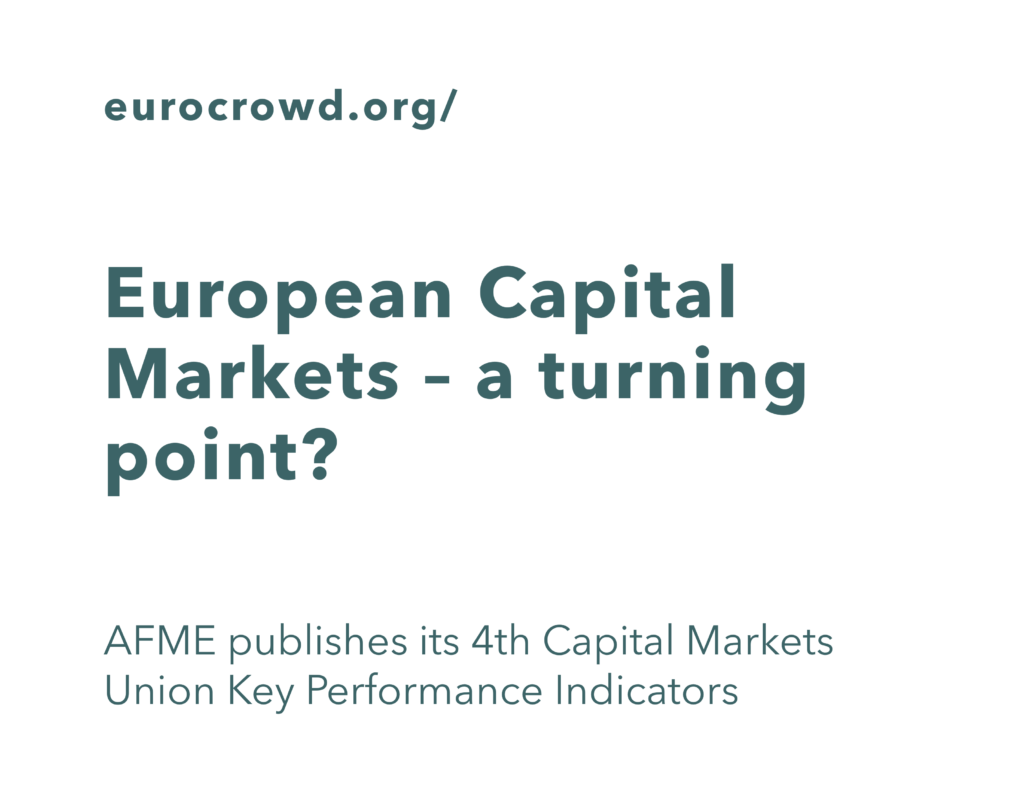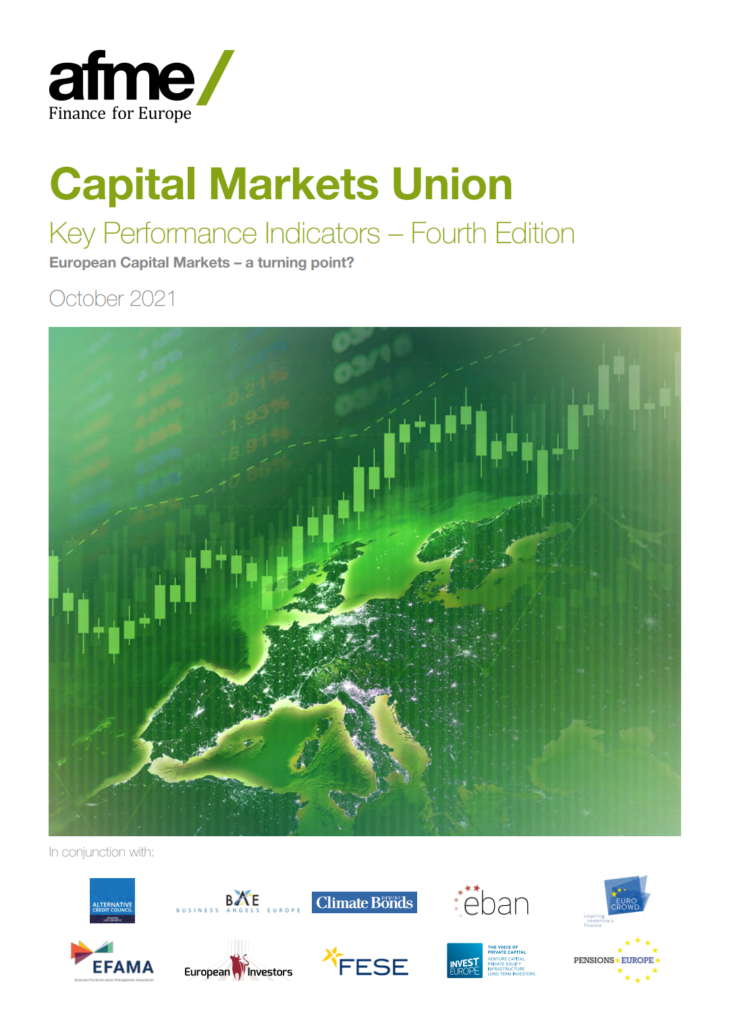Newsletter
AFME publishes its 4th European Capital Markets Union Key Performance Indicators

Brussels, 21 October 2021. EUROCROWD is happy to again have been supporting AFME in Capital Market Union Key Performance Indicator report, alongside the Climate Bond Initiative (CBI), and nine European trade associations representing stock exchanges (FESE), fund and asset management (EFAMA), retail and institutional investors (European Investors), pension funds (PensionsEurope), venture capital and private equity (Invest Europe), private credit and direct lending (ACC), business angels (BAE, EBAN).
We believe that greater transparency and collaboration between market actors is key to a Capital Markets Union. With the new regulatory framework under ECSP coming into effect in November 2021, we foresee a greater role and better data availability for crowdfunding in the coming years. The Key Performance Indicators published by AFME have been a valuable tool in understanding the development of the European Commissions drive to harmonise financial service in Europe.
Download the report here
The report outlines how European capital markets have experienced another eventful year marked by the recovery from the economic stress caused by the Covid-19 pandemic and the end of the Brexit transition period, among other developments. While last year’s edition of the industry’s Capital Markets Union (CMU) KPIs report showed there has been significant progress on the development of the CMU since the launch of the project in 2015, I am pleased to observe that the positive trajectory has continued this year.
Due to the impact of COVID-19, there has been a greater need for corporates to raise funds through capital markets. On this front our latest report points to positive developments, as capital markets have further increased the provision of funding to corporates. However, there is no room for complacency: a structural and pandemic-induced “equity gap” remains and equity-type finance still needs to be expanded in Europe. It also remains to be seen to what extent these record market-based financing levels can be sustained in more normal economic and market conditions, or whether they are a temporary result of the extraordinary support measures of the past year.
There is also significant progress concerning sustainability. EU ESG debt markets have shown rapid growth in the first half of 2021, with ESG issuance and investment no longer representing a niche sector but constituting a sizeable segment of overall debt markets. Similarly, Fintech companies have seen a substantial surge in investment in the first half of 2021. Most European countries have improved their local FinTech ecosystems over the last two years, which could prove instrumental in European job creation and growth.
While the overall results are positive, there are still long-standing issues hindering the potential of Europe’s capital markets. For instance, securitisation markets have declined with issuance reaching lower volumes than the levels shown before the introduction of the Simple, Transparent, and Standardised (STS) regime in 2018. A well-functioning securitisation market is fundamental to the capacity of the European financial system to facilitate risk transfer and provide further funding options for financial institutions. Meanwhile, the varying approaches to withholding tax across the EU and the lack of a relief-at source mechanism in some Member States continues to have a significant negative impact on cross-border investment, cost of capital and GDP.
AFME will present the key findings of their ongoing Capital Market Union Key Performance indicators at the 10th Crowdfunding Convention on the 18 November 2021.

Related posts
No related posts.